fakenews
Latest
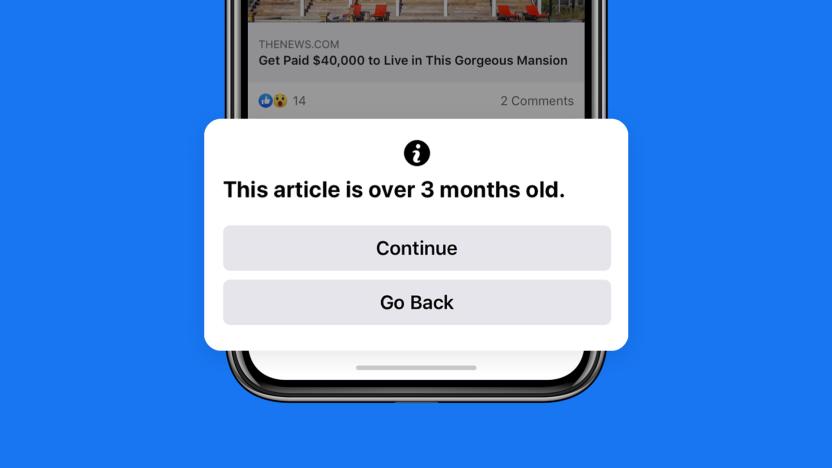
Facebook will tell you when you're about to share old news
You'll see a notification when you're linking to something more than 90 days old.
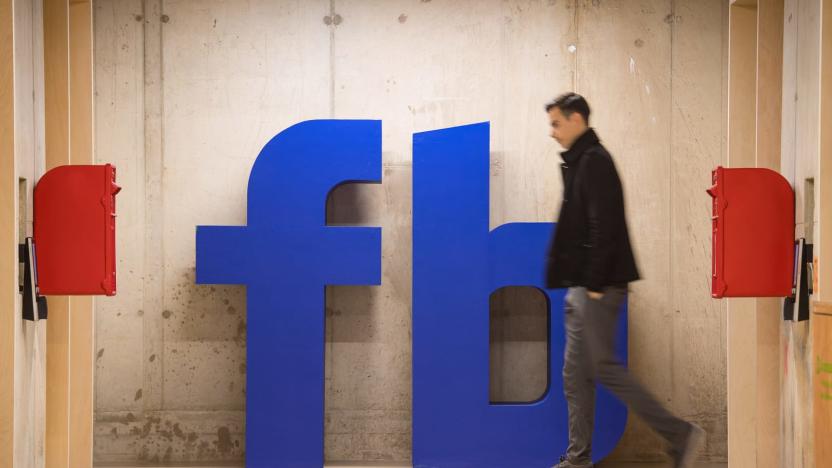
Facebook removes fake accounts stoking political tension in UK
Facebook just cracked down on more fake accounts in the UK, and this time it was a relatively sophisticated scheme. The social network has pulled 137 bogus accounts (including for Instagram), groups and pages for "coordinated inauthentic behavior" that tried to play two sides of the political debate in the UK. The perpetrators posed as both far-right and anti-far-right activists and spread divisive rhetoric about immigration, racism, religion, free speech rights and LGBT issues, among other contentious topics. If that sounds familiar, it should -- just like the US saw in 2016, the culprits were trying to stoke political tensions under the guise of rallying support.

Facebook reportedly took three years to tackle fake news in one country
Facebook is quick to tout its efforts to thwart misinformation campaigns in major European countries and the US, but its approach in other countries might not be quite so enthusiastic. Developers in Moldova told BuzzFeed News that they'd been asking Facebook to address fake news and misinformation in the country for three years before it finally removed the offenders. The Moldovans said they used a browser add-on (Trolless) to generate a database of fake accounts and had been using the official reporting tool to draw attention to them since 2016, but didn't have any luck until they made direct contact with a Facebook employee in January 2019.

AI can write disturbingly believable fake news
AI is getting better and better at writing convincing material, and that's leading its creators to wonder whether they should release the technology in the first place. Elon Musk's OpenAI has developed an algorithm that can generate plausible-looking fake news stories on any topic using just a handful of words as a starting point. It was originally designed as a generalized language AI that could answer questions, summarizing stories and translating text, but researchers soon realized that it could be used for far more sinister purposes, like pumping out disinformation in large volumes. As a result, the team only plans to make a "simplified version" of its AI available to the public, according to MIT Technology Review.
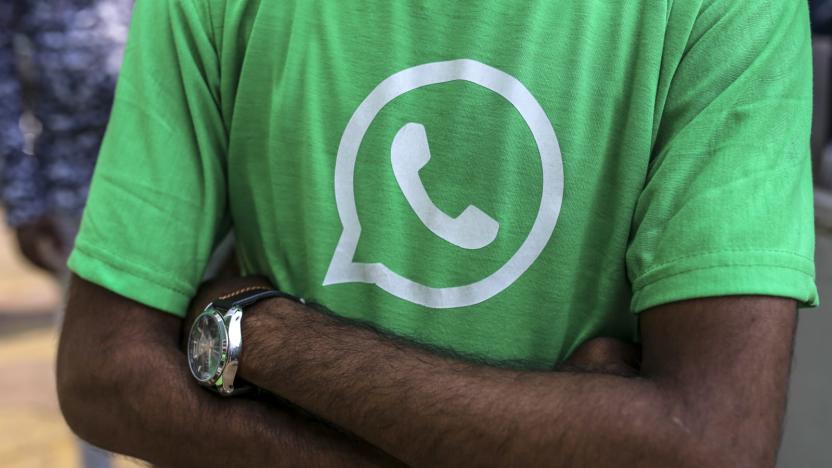
WhatsApp deletes 2 million accounts per month to curb fake news
WhatsApp is trying a number of measures to fight its fake news problem, including study grants, a grievance officer and labels on forwarded messages. However, it's also relying on a comparatively old-fashioned approach: outright deleting accounts. The messaging service has revealed in a white paper that it's deleting 2 million accounts per month. And in many cases, users don't need to complain.
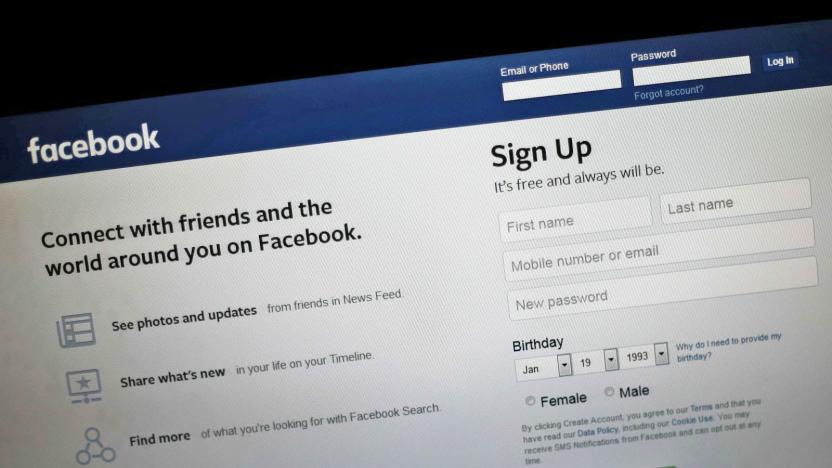
Don't trust all of those health articles you see in your Facebook feed
Facebook's battle with fake news stories goes beyond the world of politics. According to fact-checking site Health Feedback, seven of the 10 most shared health stories on Facebook in 2018 contained false or misleading information. The top 100 stories fared slightly better, but stories with misinformation were shared 12.3 million times. Well-sourced and accurate stories were shared 11 million times.
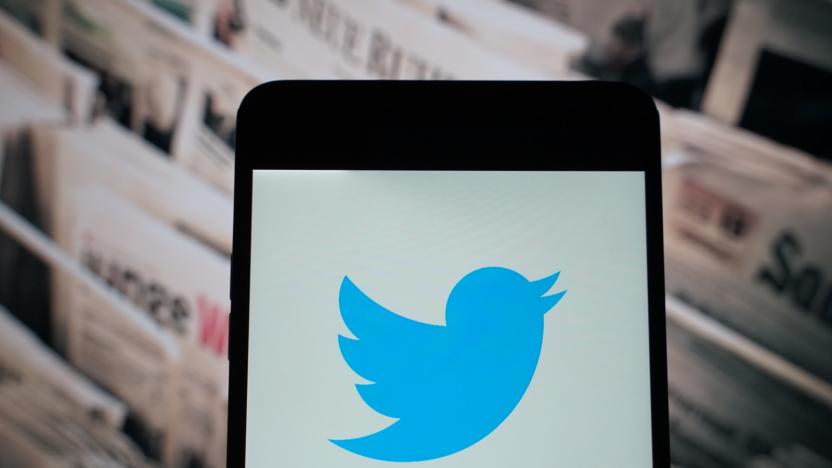
Twitter banned 2,600 Iran-linked accounts for election meddling
Since September, Twitter has suspended 2,617 accounts linked to Iran, it said in a report on its US midterm election efforts. Some of the accounts claimed they were American news outlets and discussed US political and social issues. Twitter claims it proactively suspended most of the accounts prior to Election Day.
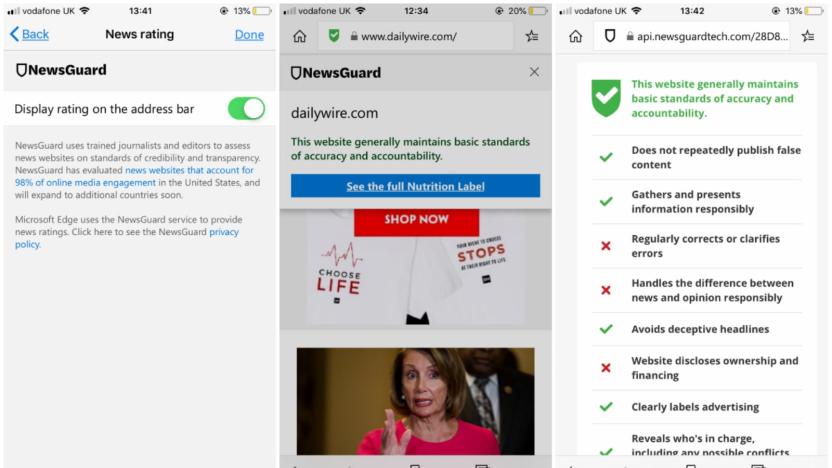
Microsoft's mobile Edge browser begins issuing fake news warnings
Microsoft's Edge mobile browser has started flagging fake news sites as part of its latest update for iOS and Android. Previously only available as a desktop plug-in, the feature is powered by news rating company NewsGuard -- which makes a point of using journalists, not algorithms, to identify "unreliable" websites. Its eponymous fake news extension is also available for Chrome, Firefox and Safari.

WhatsApp limits forwarding worldwide to fight hoaxes and rumors
WhatsApp limited forwarding in India as part of an effort to curb hoaxes and rumors that could lead to violence, and now that policy is spreading. The Facebook-owned messaging service has announced that it's lowering the forwarding limit worldwide from 20 people or groups to the same five Indian users have dealt with since July. The update applying the limit will start to roll out on January 21st, starting with Android users and reaching iOS later.

Facebook purges more than 500 Russian-led disinformation pages
"Coordinated Inauthentic Behavior" is such an anodyne way of describing weaponizing information to poison attitudes and democracies. That's the euphemism that Facebook is employing to talk about its latest purge of accounts and pages that may be part of a Russian disinformation campaign. More than 500 pages and accounts have recently been removed, according to a report by Facebook's cybersecurity policy chief.

YouTube searches for 'RBG' led to slew of bogus conspiracy videos
As much as YouTube has done to counter hoaxes and fake news in its searches, it still has room for improvement. The Washington Post discovered that "more than half" of YouTube's top 20 search results for "RBG," the nickname for US Supreme Court Justice Ruth Bader Ginsburg, were known fake conspiracy theory videos. In fact, just one of the results came from a well-established news outlet. And if you played one of those videos, the recommendations quickly shifted to more extreme conspiracies.

Recommended Reading: The best of 2018
Surface Go is Microsoft's big bet on a tiny-computer future Lauren Goode, Wired We're taking a look back at the most popular Recommended Reading stories of the year this week. At the top of the list is Wired's detailed piece on the $399 Surface Go, Microsoft's long-rumored smaller Surface device. Other popular RR entries this year cover Alexa and Google Assistant, an interview with Tim Cook, election hacking and fake news.

Facebook will send policy VP to testify in UK instead of Zuckerberg
Facebook might have turned down the UK parliament's request for Mark Zuckerberg to testify, but it will be sending someone in his place. The government's Digital, Culture, Media and Sport (DCMS) committee has confirmed that Facebook will send policy solutions VP Richard Allan (above) to testify to a collection of international parliaments on November 27th. DCMS "still believes" Zuckerberg is the best person to address questions about "data privacy, safety, security and sharing," but it has accepted Allen instead.
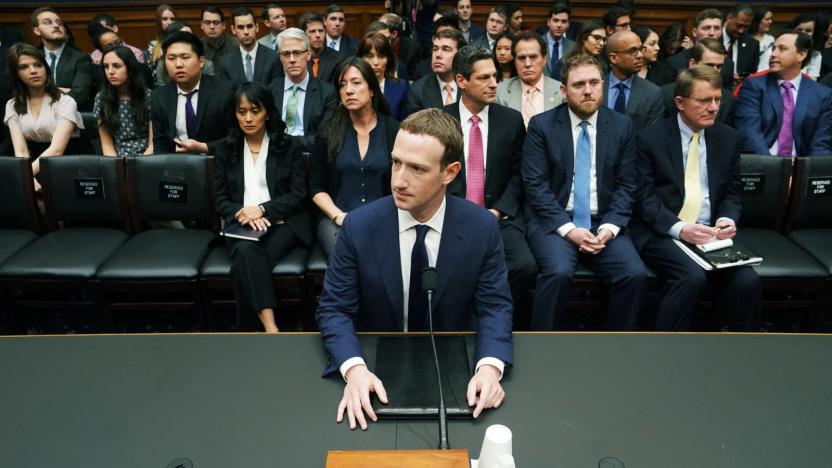
Mark Zuckerberg refuses to testify in the UK yet again
Mark Zuckerberg has yet again rebuked a UK parliamentary request for him to testify. An international committee had called for the Facebook CEO to appear before it later this month.

Twitter’s new midterm election page already includes fake news
Today, Twitter rolled out a new page focused on the US midterm elections, and on it, users can view supposedly relevant tweets through two tabs -- "Latest" and "Top Commentary." On mobile, there's also a "News" tab that includes separate sections for each state. However, while this page is clearly meant to be a place for users to find more information about the upcoming election, it's surfacing tweets from conspiracy theorists, people pushing disinformation and what appear to be bot accounts, BuzzFeed News reports.

Facebook removed 82 fake accounts and Pages linked to Iran
Facebook has taken down dozens of additional Pages originating from Iran that it says were engaged in inauthentic behavior. Posting about political topics such as race relations, immigration and the US president, these Pages and accounts -- 82 in total -- posed as US, or in some cases UK, citizens. Facebook first discovered the Pages' activity a week ago, and its war room staff then investigated and ultimately removed the Pages in question. The company says it has shared information about these Pages and their activity with US and UK government officials, US law enforcement, Congress, other tech companies and the Atlantic Council's Digital Forensic Research Lab.

US targets individual Russians in fight against election interference
The US isn't limited to fighting election interference campaigns on its own soil. The New York Times has learned that Cyber Command is conducting the country's first known overseas operation to protect American voting against online meddling. The initiative reportedly entails deterring individual Russian operatives spreading disinformation by making it clear that US agents are tracking their activity. In theory, this will force the Russians to change their behavior without prompting an escalation that could lead to power grid attacks and other much more serious campaigns.

Fake news is down on Facebook in the US and France, say three studies
Mark Zuckerberg and Facebook have not had a great year. From being called in front of Congress to getting lashed by the media for its appalling handling of user data, the pressure has been on the social media site to get things right. Even calls for Zuckerberg to be kicked out as chairman are starting to percolate. But Zuckerberg might be able to breath a little easier today as three new independent studies show that fake news overall is going down on the website he launched from his dorm room.

Inside Facebook's 'war room' is a battle for public trust
The internet has a misinformation problem. Symptoms include fake news, election interference, hate speech, trolling -- it goes by many names. It's become increasingly clear over the past few years that social media platforms should bear some responsibility for policing what's shared on them. None more so than Facebook. For many, it's the front page of the internet. The place they go to like friends' baby pictures, watch viral videos and read the news. Facebook's doing its part to tackle misinformation, and talking about what it's doing to tackle misinformation even more. And so today, we're hearing more about the 'war room.'

Americans fear they can’t identify social media bots
A new poll from the Pew Research Center, a nonpartisan fact tank that studies trends, found that many Americans fear they cannot discern a bot from an actual person on social media. This study did not tackle the percentage of people who have been fooled by bots, but more simply, what general knowledge and awareness Americans have. About half -- 47 percent -- of the people who've heard of bots feel confident or somewhat confident that they can recognize one on social media. Only seven percent felt they were very confident. This is contrast with another study done by Pew in December of 2016 that found 84 percent of Americans felt they could readily recognize fake news. According to the study, about 66 percent of Americans have heard of social media bots-- to at least some extent -- and are aware of their existence. Another 34 percent had never heard of bots at all. The margin of error for the 4,581-person sample was 2.4 percentage points.







